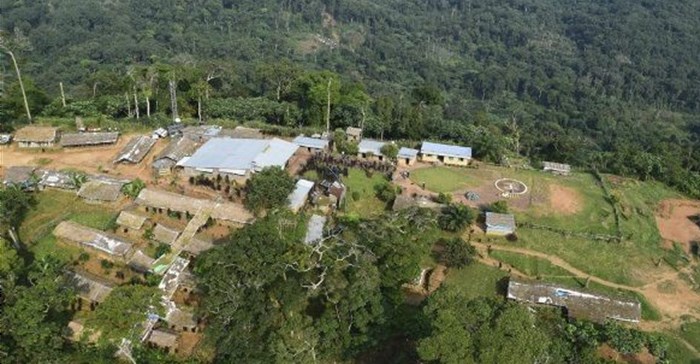Those who think that mining companies sit idly over rich resources and reap fat profits from them should think again. The obstacles to building new mines in virgin areas in politically unstable countries would deter all but the most determined, optimistic and pragmatic individuals.
SA has plenty of them.
Our group of five journalists took 10 hours to travel the 3,800km from Johannesburg to the site of Alphamin Resources' Bisie tin project in the Democratic Republic of Congo (DRC).
Bisie is 180km from Goma and 60km from the village of Walikali in North Kivu province. It is being developed by a team of South Africans and Congolese.
Getting there is the first hurdle. The journey involved a 3-hour flight from Johannesburg to Kigali in Rwanda, a three-hour taxi ride to the DRC border, a 30-minute charter flight from Goma to land on the road near Walikali (there is no airstrip), and a 30-minute drive along the N3 to the village of Logu.
The last 32km from Logu to the mine took three hours in 4x4 vehicles over a sticky clay road, including several bridges, built by the Bisie team. They are also busy with an airstrip.
Transporting people is a lot easier than getting heavy equipment and supplies to the mine, which is complex, time consuming and expensive.
At Bisie, accommodation for the 70 specialists working on the mine (all men) and their visitors is in small safari tents pitched under roofing, with shared ablutions. That is where we spent a night.
On returning to SA, I discovered that I had been comprehensively bitten by bed bugs. Other wildlife is scarce, though a few birds can be heard.
The area we travelled through has a tragic history going back to the 1994 Rwandan genocide, and it underscores why it is so difficult to do business in parts of this region. More than 800,000 Rwandans, mostly from the Tutsi minority, were murdered in a three-month killing spree begun by the Hutu majority.
Hutus who fled to the DRC to avoid retribution in Rwanda formed rebel groups that are behind the almost continuous fighting that has plagued North Kivu ever since - between DRC and Rwandan forces, and between DRC forces and rebels.
The fighting was financed by artisanal mining of gold, tantalum, tin and tungsten.
In 2010 the US passed the Dodd-Frank Act, which contains provisions requiring the certification of those four minerals mined in the Great Lakes region. Overnight the price of uncertified tin fell through the floor. Most of the 15,000 artisanal miners on the Bisie site left.
The relationship between the mine managers and the few hundred artisanal miners who remain is relatively peaceful, but security measures are tight. Fifty police officers are permanently stationed on the mine and we had an armed escort everywhere we went. The mine's managers have received death threats and experienced other forms of harassment.
Rwandan President Paul Kagame and his Congolese counterpart, Joseph Kabila, seem equally unwilling to give up power.
But there are stark differences in the way the two economies have been managed. Rwanda has 12-million people and no mineral resources, yet GDP per capita is $702. DRC, with 79-million people, is richly endowed with copper, cobalt, gold and other minerals. Its per capita GDP is only $444.
Kigali has modern office buildings and apartments near the airport, including a domed conference centre that changes colour all night, and several good hotels. Pavements are neat and litter-free. Downtown is full of small traders, pedestrians and chaotic traffic.
The Rwandan government is eager to encourage tourists. Gorilla trekking is the most famous attraction, but visitors can also hike up active volcanoes and stay overnight to wonder at the glowing lava. Spectacular Lake Kivu on the DRC border has modern hotels and luxury houses.
While Rwanda has a brand-new, imposing border post financed by the Howard G Buffett Foundation, only 100m away the DRC border post is a single-storey house in a dusty parking lot.
Goma is only a regional capital, but it is reasonably well developed, perhaps partly because of the longstanding UN presence there. It has some good hotels and shops, including a French bakery, and a bustling downtown area.
One of the more startling sights is chukudus, wooden scooters with no engines that locals have put together from scrap. They weave around the traffic, carrying goods.
For the DRC and particularly North Kivu, minerals have been a curse. But if the DRC's political leadership had been more like Rwanda's, it might have managed its resources better. Instead, its government is in the process of revising the mining code again to extract more money from the few companies that operate there, instead of offering concessions to attract legitimate businesses that could help to stabilise the economy.
















































